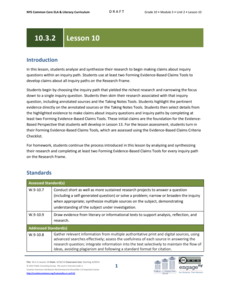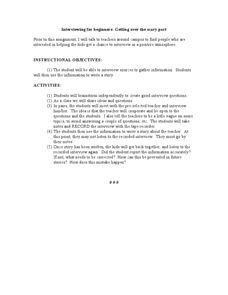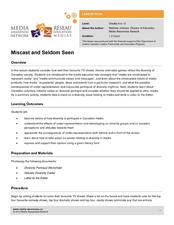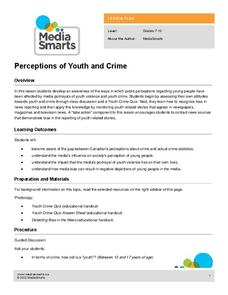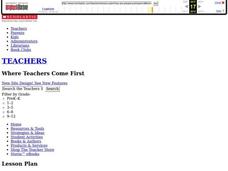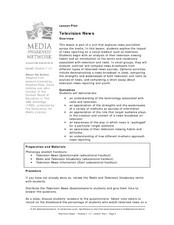Curated OER
Introduction to Age of Absolutism
Who were the absolute monarchs of Europe and what effect did they have on their countries? Young historians begin by naming qualities they believe are important for a monarch to possess. They then take notes on four key factors leading...
EngageNY
Grade 10 ELA Module 3: Unit 2, Lesson 10
What's the verdict? After finding sources and gathering information, scholars must now make a claim. Learners narrow their focus and refine their inquiry paths before analyzing the information and making a claim about their questioning....
Curated OER
Dispute Over Slavery in Kansas Territory
Students analyze primary sources on slavery from Kansas Territory. In this Civil War lesson, students evaluate the antislavery and pro-slavery arguments and summarize key points. Students write a persuasive paper from the antislavery...
Curated OER
Writing a Literary Analysis
What makes writing literary? What comprises analysis? A 15-slide PowerPoint presentation, created by the Purdue University Writing Lab, tackles these questions. The explanations of what makes writing literary and what comprises analysis...
Curated OER
From Smithson to Smithsonian: Who Was James Smithson?
Students evaluate and examine primary and secondary source material as they relate to the life of James Smithson.In this "From Smithson to Smithsonian" lesson, students analyze documents looking for clues to the identity of James Smithson.
Curated OER
Interviewing for beginners: Getting over the scary part
Are you beginning a unit on interviews/ conducting interviews? This lesson doesn't contain many details, but you might want to check it out if you're hoping to lead your class in interviewing outside sources.
Curated OER
Journalism: Quoting Sources
Students examine the use of sources and their quotes in news writing. They determine the reasons specific persons are used as sources and why their opinions are relevant to the article. In groups, they identify sources in articles and...
Curated OER
Plagiarism Workshop
What do George Harrison, Vanilla Ice, and Steven Ambrose all have in common? The Warner Brothers’ films Batman Forever and The Devil’s Advocate? All are guilty of plagiarism. And if you are considering a research project and want to...
Curated OER
Unit 2: Post-Revolution: The Critical Period 1781-1878
The post-Revolutionary Period of 1781-1787, also known as the Critical Period, is the focus of a series of lessons that prompt class members to examine primary source documents that reveal the instability of the period of the Articles of...
Curated OER
Assessing Research Materials
Teaching learners how to evaluate a research source is an important part of the research process. The fresh idea here is that groups first develop a list of reasons why resources should be evaluated, transform these reasons into...
Curated OER
Consider the Source
Students explain how to critically compare news reporting from around the world, focusing on coverage of the Taliban regime. They compare and contrast television and print media reporting on the issue.
iCivics
Drafting Board: Interest Groups
Does the influence of interest groups harm a political system? Your class members will analyze the role of interest groups in American politics, as well as consider the effect of perspective, bias, loyalty, and the First Amendment.
Curated OER
Letters from the Japanese American Internment
Students delve into primary research. In this Japanese Internment lesson plan, students make deductions about life in an internment camp by reading and comparing letters written to Clara Breed. Along the way, they consider the advantages...
Curated OER
Edward R. Murrow: This Reporter
What would Edward R. Murrow think of today’s news broadcasts? Learners examine the work of the first public television newscaster and his commitment to researched, accurate reporting. The eight-day study concludes with investigators...
Curated OER
Miscast and Seldom Seen
Consider how well students' favorite TV shows, movies and video games reflect the diversity of society. The lesson introduces your class to several media literacy concepts, such as how media conveys values and messages, as well as the...
Media Smarts
Perceptions of Youth and Crime
Explore the potential for bias in the news and in scholars' own attitudes and opinions. Begin with a quiz on youth crime to see how learners perceive crime among their peers. After looking at the correct answers, put individuals in...
Public Media for Northern California
An Educator’s Guide to Teaching Gun Control Issues | The Lowdown
The topic of gun control is vast, controversial, and difficult to introduce to students. This gem of a resource covers both sides of the issue and provides topic background, various multimedia and print resources, analysis questions, and...
Curated OER
Unit 1: Building Historical Background Knowledge: The Road to Revolution 1754–1776
What were the conditions that led to the American Revolution? What are the conditions that lead to revolution in other times and places? Class members examine primary source materials and use evidence drawn from these documents to craft...
Curated OER
Constructing Narrative from the Migrant Experience in Literature
Excerpts from John Steinbeck's The Grapes of Wrath and from John Fante's Ask the Dust, as well as a variety of primary source documents provide the background for an examination of the migrant experience from 1920-1945.
Curated OER
After Reconstruction: Problems of African Americans
Students describe issues or problems facing African Americans following Reconstruction. They explain possible solutions to these problems suggested in the sources you find, and cite arguments for and against these solutions.
Curated OER
How are People Portrayed by Different Media?
Your 9th - 12th graders can hone their analysis and critical thinking skills by studying the way a subject is portrayed across media types. They examine how various print, visual, and online sources have portrayed key players in the 9/11...
Curated OER
Television News
Different media sources portray news in a variety of ways. In groups of three, learners look at different news sources, bringing in all the findings the next day. Three handouts help scholars compare sources, define specific terms used...
Curated OER
Not Just the Facts
Encourage your learners to explore the differences between hard news and news analysis. They outline a complex news analysis about the upcoming presidential election, then endeavor to write an analysis of the same topic, using local...
Curated OER
Life Reflections in Songwriting and Poetry
Learners analyze, discuss and compare sources of inspiration, use of words and imagery, and other differences in writing styles between two featured songwriters. This is an introductory lesson to a creative project unit.
Other popular searches
- Primary Sources
- Alternative Energy
- Primary and Secondary Sources
- Energy Resources
- Energy Sources
- Light Sources
- Water Sources
- Sources of Water Pollution
- Citing Sources
- Primary Resources
- Alternative Energy Sources
- Alternative Fuels



